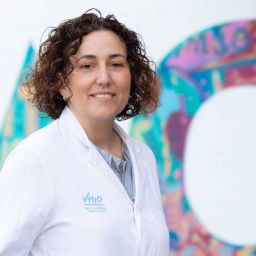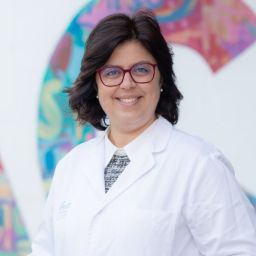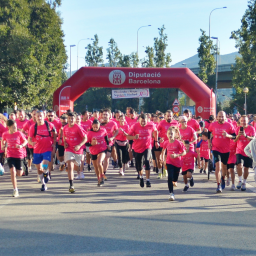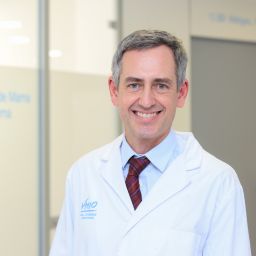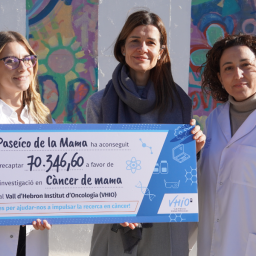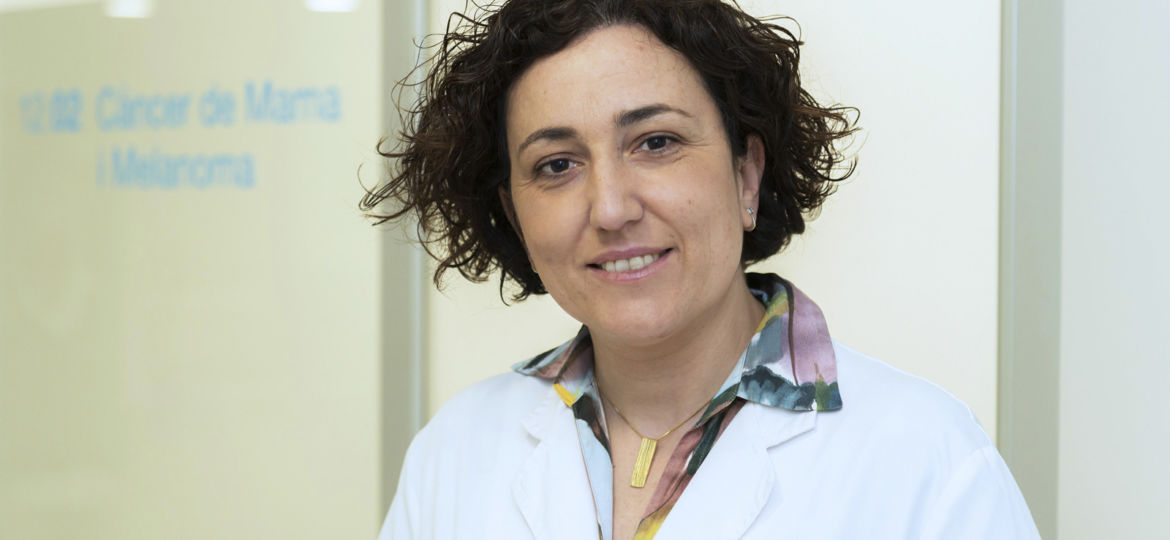
- Presented at the 45th annual San Antonio Breast Cancer Symposium® (2022 SABCS®), primary results of the multicenter international POSITIVE study show that, under close medical surveillance and during a determined period, interruption of endocrine therapy in young women with endocrine-responsive breast cancer planning pregnancy does not increase the risk of short-term relapse.
- Follow-up of 497 patients revealed that 317 women gave birth to at least one child and a total of 365 babies were born.
Presented at the 2022 San Antonio Breast Cancer Symposium® (SABCS®), December 6-10, San Antonio, Texas (USA), results of the POSITIVE study* coordinated in Spain by the SOLTI Breast Cancer Research Group and GEICAM Spanish Breast Cancer Group report pregnancy outcomes and safety of temporarily stopping endocrine therapy in young women with hormone receptor (HR)-positive breast cancer planning pregnancy.
“Between 40 and 60 percent of breast cancer patients aged 40 or younger are concerned about their future fertility, especially if they are diagnosed before they have decided if they would like to have children,” said Ann Partridge, Vice-Chair of Medical Oncology, Diretor of the Program for Young Women with Breast Cancer, Dana-Farber Cancer Institute, Boston (USA), and first author of this present study.
She continued, “Aimed at addressing this preocupation, the POSITIVE study was designed to evaluate pregnancy outcomes and safety of interrupting endocrine therapy in women who are diagnosed with breast cancer at an early age, for whom treatment is recommended for at least 5 years.”
Initial results of this pioneering study show that pregnancy is safe in patients with HR+ tumors which can raise the most concern over elevated levels of estrogen during pregnancy. After a median follow-up of 41 months, the relapse rate in patients who stopped treatment was 8.9% versus 9.2% in those patients who received continued, uninterrupted therapy.
“Our initial data show that rates of short-term disease recurrence were comparable in those patients who stopped endocrine therapy for a determined period of time and those who received continuous treatment. In addition, the majority of these patients went on to conceive and give birth to healthy babies,” observed Cristina Saura, Principal Investigator of the Vall d’Hebron Institute of Oncology’s (VHIO) Breast Cancer Group, Head of the Vall d’Hebron University Hospital’s (HUVH) Breast Cancer Unit, member of SOLTI’s Board of Directors, and co-coordinator of the POSITIVE study in Spain.
Manuel Ruiz Borrego, Head of the Breast Cancer Unit at the Virgen del Rocío University Hospital in Seville, also a co-coordinator of the POSITIVE study in Spain, and member of GEICAM’s Board of Directors said, “Our findings respond to a very important question for young women with early, hormone receptor-positive breast cancer receiving treatment after surgery, wishing to have children. First results confirm that there is no significant difference between disease evolution in patients with interrupted treatment, who are strongly encouraged to resume therapy thereafter, and those who received continued treatment.”
From December 2014 to December 2019, 518 women aged 42 or younger with HR+ breast cancer who wanted to become pregnant were enrolled in the POSITIVE study. Prior to interrupting therapy, these patients had received between 18 and 30 months of adjuvant endocrine therapy. Follow-up of 497 patients revealed that 317 women gave birth to at least one child and a total of 365 babies were born.
Olivia Pagani, co-author of POSITIVE and presenter of this data added, “Conception and delivery rates were on par with or higher than those in the general population. 74% of patients who were followed up for pregnancy status had at least one pregnancy and 63.8% gave birth to at least one live-born child.”
In addition to the psychological impact of their disease, some patients also worry that the possibility of pregnancy is compromised. “If a woman is diagnosed with breast cancer aged 37 or 38 and begins hormone therapy, in addition to chemotherapy, this patient will be between 44 and 45 years of age at the end of her treatment, an age at which it is typically more difficult to consider and achieve pregnancy,” noted Manuel Ruiz Borrego.
Study participants were strongly recommended to resume therapy after attempting pregnancy or having stopped hormone therapy for two years. To date, 76% of patients have restarted their therapy.
“Only 5 to 10 percent of young breast cancer patients become pregnant. While some retrospective studies have shown that pregnancy after cancer is both feasible and safe, many women worry that treatment might make conception more difficult or that pregnancy could aggravate the disease,” said Olivia Pagani, POSITIVE Study Chair on behalf of the International Breast Cancer Study Group (IBCSG)
“While the primary results of POSITIVE are reassuring, long-term follow-up will be essential to corroborate our data. It is important to add that any treatment decision must naturally be discussed and taken by the multidisciplinary team of healthcare professionals, and hand in hand with each individual patient,” concluded Cristina Saura, co-author of POSITIVE and a Member of SOLTI’s Board of Directors.
Spanish participation in the POSITIVE study
Patients from 116 sites spanning 20 countries participated in this study; 23% from North America, 16% from Asia/Pacific and the Middle East, and 61% from Europe, of whom 72 were enrolled from 18 Spanish hospitals and recruited through the SOLTI and GEICAM breast cancer research groups.
To assess the risk of disease recurrence over time, the POSITIVE investigators continue to follow-up the study participants. Given that recurrent hormone receptor-positive breast cancer can occur years after initial diagnosis, the authors acknowledge that the short follow-up to date is a limitation of this study.
The study is promoted and led worldwide by the International Breast Cancer Study Group (IBCSG), a division of the ETOP-IBCSG Partners Foundation, and the Alliance for Clinical Trials in Oncology in North America, in collaboration with the Breast International Group (BIG) through its member groups SOLTI and GEICAM in Spain.
Reference:
*GS4-09 – Pregnancy Outcome and Safety of Interrupting Therapy for women with endocrine responsIVE breast cancer: Primary Results from the POSITIVE Trial (IBCSG 48-14 / BIG 8-13)
Partridge AH, Niman SM, Ruggeri M, Peccatori FA, Azim Jr HA, Colleoni M, Saura C, Shimizu C, Sætersdal AB, Kroep JR, Mailliez A, Warner E, Borges VF, Amant F, Gombos A, Kataoka A, Rousset-Jablonski C, Borstnar S, Takei J, Lee JE, Walshe JM, Ruiz Borrego M, Moore HCF, Saunders C, Bjelic-Radisci V, Susnjar S, Cardoso F, Smith KL, Ferreiro T, Ribi K, Ruddy KJ, El-Abed S, Piccart M, Korde LA, Goldhirsch A, Gelber RD, Pagani O (Presenting Author). POSITIVE Investigators, International Breast Cancer Study Group (a division of ETOP IBCSG Partners Foundation) Alliance for Clinical Trials in Oncology, Breast International Group, U.S. NCI National Clinical Trials Network.
Session details:
San Antonio Breast Cancer Symposium®
GENERAL SESSION #4 – Hall 3
Date: Friday 9 December 2022
Moderators: Julie Nangia, Wendy A. Woodward
Session time: 09:00am – 11:30am CT.
About the San Antonio Breast Cancer Symposium®
Since 1977, the San Antonio Breast Cancer Symposium® (SABCS®) has been the leading scientific conference for basic scientists, physician-scientists, clinical investigators and breast care providers, and advocates seeking an exchange of new information in experimental biology, etiology, prevention, diagnosis, and therapy of premalignant breast disease and breast cancer. Founded, owned, and operated by UT Health San Antonio, the symposium has grown to a five-day event attended by an international audience of academic investigators and private physicians from over 80 countries to attain information through abstract presentations, panel discussions, research findings, and state-of-the-art educational sessions. UT Health San Antonio, with co-sponsor the American Association for Cancer Research, supports SABCS, which provides education and accessibility to the latest information regarding the prevention, diagnosis, and treatment of premalignant breast cancer and breast disease. For more information on SABCS, visit: www.sabcs.org.

